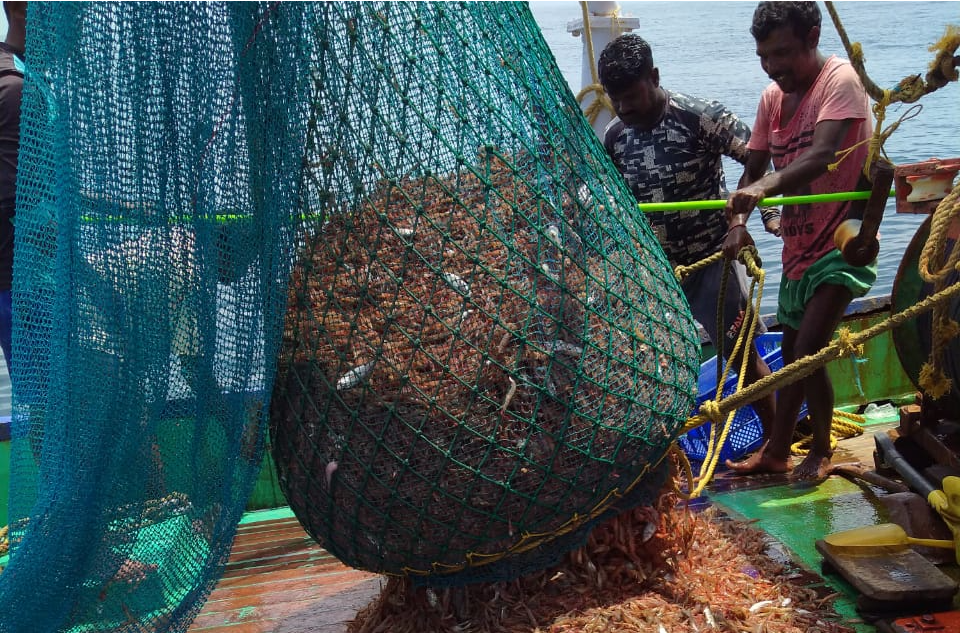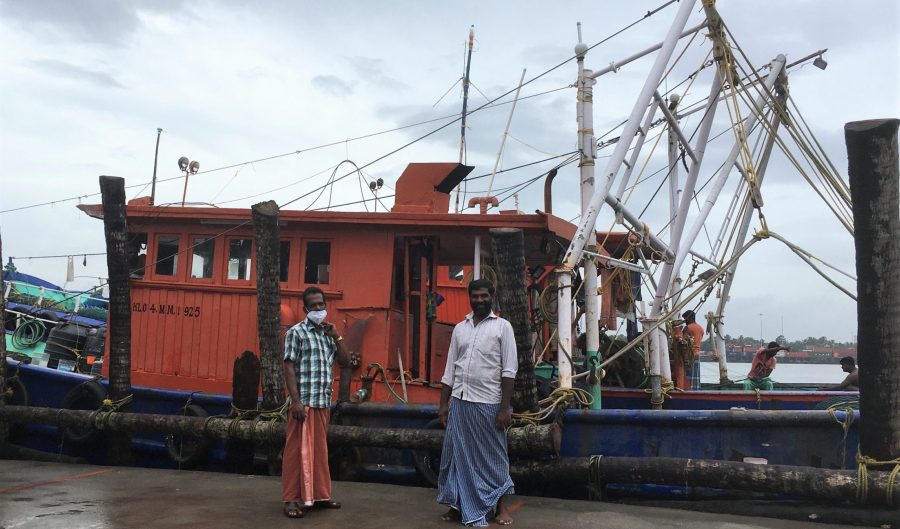25 March 2022 | Puthuvyppu, India
You have been a fisherman for a long time now. What changes have you experienced?
I was born and raised in Puthuvyppu, a small village on India’s western coast. My father moved there a few years before I was born to become a fisherman. When I left school, I became one myself. Now my oldest son has a Ph.D. in fisheries science. The ocean has an important role in the lives of my family.
Over the years, I experienced many changes in the fishing sector, but also in the ocean itself. The coastline is moving further away: 25 to 30 metres every year, I think. We now have strong currents coming from the east bringing dirt and garbage to our beaches.
When I started, most fishermen used small boats without engines. We would leave early in the morning and come back in the evening; it would take us all day to catch enough fish. On top of that the selling price was low and we could only sell our fish at the local market, because we did not have the tools to keep our catch fresh for a longer period of time. But fish stocks back then were abundant because we were catching fish in a sustainable way.

